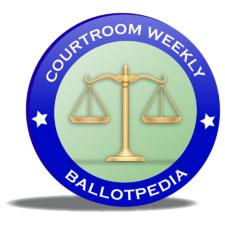| By Susan Lawrence
The New Mexico State Supreme Court issued a unanimous ruling which found a photography studio violated the New Mexico Human Rights Act (NMHRA) in 2006 by refusing to provide photography services for a commitment/wedding ceremony between two women.
Vanessa Willock contacted Elane Photography by e-mail to find out if the studio would photograph her commitment ceremony to another woman. Elaine Huguenin, a co-owner of the photography studio, wrote back to Willock and indicated the studio only provided services for “traditional weddings”. Willock wrote back to confirm the studio’s policy. According to the Supreme Court’s ruling, Huguenin responded:
| “
|
Yes, you are correct in saying we do not photograph same-sex weddings.[13][5]
|
”
|
Willock filed a discrimination complaint with the New Mexico Human Rights Commission against Elane Photography. She claimed the photography studio violated the NMHRA because it would not photograph her wedding due to her sexual orientation. The NMHRA prohibits public accommodations, including businesses such as Elane Photography, from discriminating against individuals in a protected class, which includes among others, a person’s sexual orientation. New Mexico, 21 other states and the District of Columbia have laws to protect against discrimination based upon sexual orientation. However, 29 other states do not offer similar legal rights.[14]
In 2008, the New Mexico Human Rights Commission ruled in favor of Willock and also awarded her attorney’s fees. Elane Photography appealed the decision to the Second Judicial District Court. That court ruled in favor of Willock, as did the New Mexico Court of Appeals. The Supreme Court then agreed to review the case.
Lawyers for Elane Photography argued the studio didn’t refuse to photograph Willock's wedding due to her sexual orientation but because the owners are opposed to same-sex marriages. They also argued that by forcing the studio to provide services for same-sex weddings, the NMHRA forces them to violate their own rights to religious freedom and free speech. In addition, they noted photographing weddings for same-sex couples would leave them with less time to provide services for their preferred customers, heterosexual couples.
The court’s opinion found the photography studio’s refusal to provide services to Vanessa Willock violated her rights under the NMHRA. The court also found that requiring Elane Photography to provide services for Willock did not violate the rights of the company or its owners under state or federal law.
Although Elane Photography tried to argue their wedding photographs are a protected form of creative expression, the court indicated the NMHRA does not provide an artistic or creative exemption. However, the court noted that although the law requires the studio to provide services to everyone, the studio is free to maintain and express their opposition to same-sex marriage.
In his concurring opinion, New Mexico Supreme Court Justice Richard C. Bosson noted:
| “
|
At its heart, this case teaches that at some point in our lives all of us must compromise, if only a little, to accommodate the contrasting values of others...That compromise is part of the glue that holds us together as a nation, the tolerance that lubricates the varied moving parts of us as a people. That sense of respect we owe others, whether or not we believe as they do, illuminates this country, setting it apart from the discord that afflicts much of the rest of the world.[13][5]
|
”
|
Jordan Lorence, an attorney who represented Elane Photography and the Huguenins, criticized the ruling:
| “
|
We believe that the First Amendment protects the right of people not to communicate messages that they disagree with.[14][5]
|
”
|
In a posting on the ACLU's blog, Louise Melling, Deputy Legal Director for the ACLU noted:
| “
|
When a business opens its doors to the public it must comply with anti-discrimination laws, even if doing so offends a business owner's religious beliefs.[15][5]
|
”
|
Lorence indicated the owners of Elane Photography may appeal the decision to the United States Supreme Court. |









